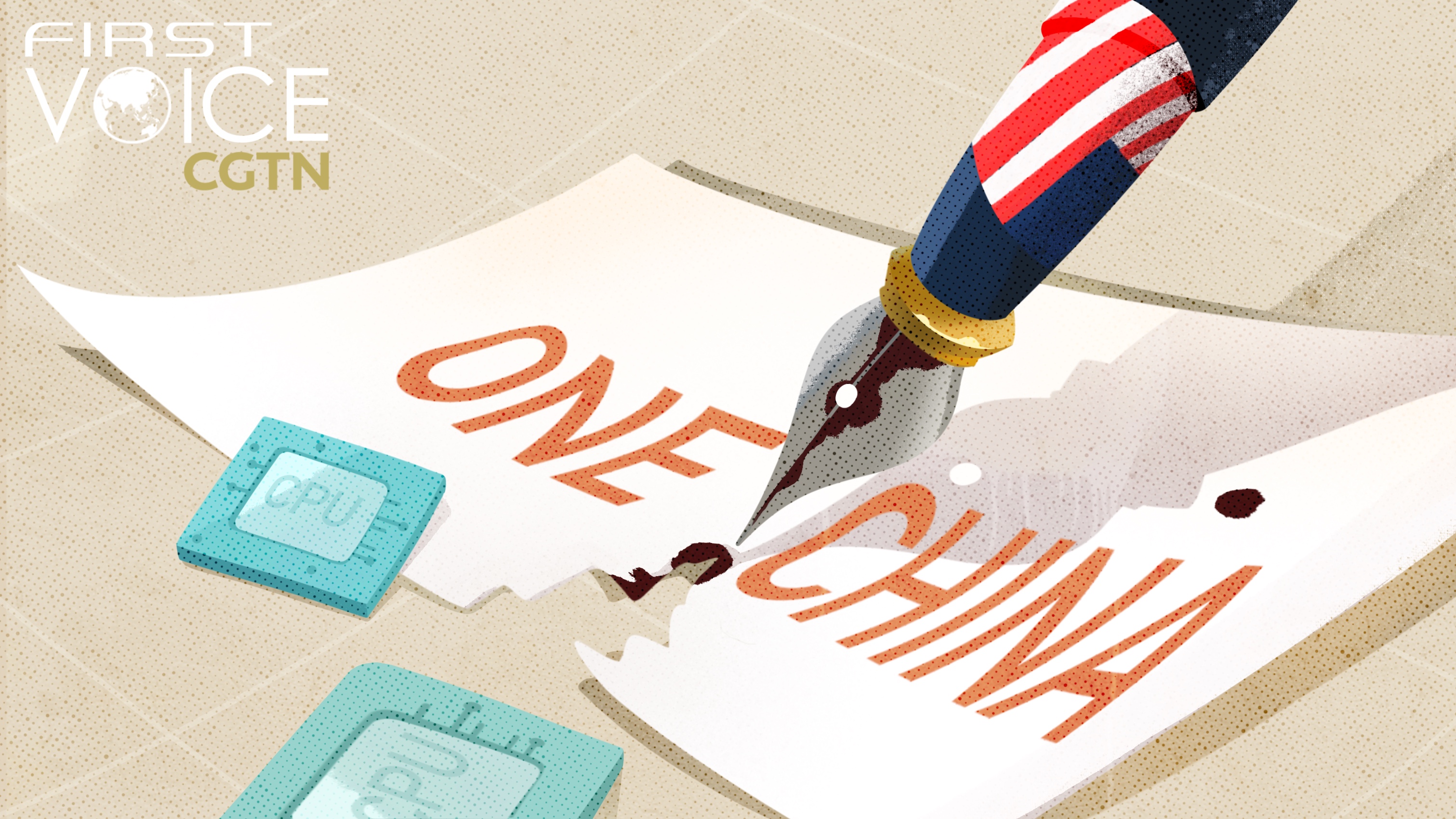
The U.S. is looking to abandon its one-China policy while using the Taiwan question as an excuse to suppress China's technological development. [Photo/CGTN]
Editor's note: CGTN's First Voice provides instant commentary on breaking stories. The daily column clarifies emerging issues and better defines the news agenda, offering a Chinese perspective on the latest global events.
The United States is embracing its worst instincts over its policy towards China's Taiwan region.
The U.S. Senate Foreign Relations Committee is meeting this week to discuss the Taiwan Policy Act of 2022 introduced in June. The bill is calling for recognizing the elected administration of the region "as the legitimate representative of the people of Taiwan" and accelerating the "modernization of Taiwan's defense capabilities required to deter or, if necessary, to defeat an invasion of Taiwan by the People's Republic of China." Meanwhile, Reuters has reported on September 13 that the U.S. is also considering imposing sanctions on China to deter the Chinese mainland from "invading" Taiwan. It is said that Tsai Ing-wen's political machine is pressuring Brussels to do the same. The sanctions are reported to involve restricting trading and investments with China in computer chips, telecoms equipment and other sensitive technologies.
If the bill passes and signs into law, it'll become the worst nightmare that many foreign policy people both in China and in the U.S. have feared for decades. Since the establishment of the China-U.S. relationship, it's been the consensus that the relationship is built upon the Three Joint Communiques in which the U.S. acknowledges that there is only one China and that Taiwan is part of China. By radically altering America's attitude and policies towards Taiwan, the United States is betraying the letter and spirit of the Three Joint Communiques. It places Washington on a direct path towards confrontation with Beijing.
No rational actor would take joy in such an event. But rationality isn't prevailing at the moment in the U.S.

A citizen runs in front of the Taipei 101 skyscraper in Taipei, southeast China's Taiwan, Oct. 1, 2019. [Photo/Xinhua]
As the mid-term elections are coming up, U.S. politicians are getting overwhelmed by their greatest fears – losing their jobs. From the introduction of the bill, Nancy Pelosi's ill-advised Taiwan trip, to the horde of U.S. politicians that followed suit, have all been centered around the one element that they believe would capture them votes – being tough on China. With political strife, racial divisions and soaring inflation rates shattering their hopes to get votes by serving the constituents, American politicians could only look strong by projecting their strength outwards. Whether it's in Europe or in East Asia, they think they must look strong and uncompromising so that people would put them in office for another term.
But these policy-makers are also driven by another fear – China itself. Why are the Americans linking the Taiwan question to technologies? The United States' global hegemonic status after the Cold War has been cemented by the proliferation of tech innovations. Microsoft, Apple, Facebook, these companies are the real projection of American influence across the globe. American's ability to lead the world in tech and information revolution stands at the core of its global dominance.
And the Taiwan question, from U.S. politicians' perspective, is the answer to China's "challenge." By provoking China to spend energy and goading it into a conflict while the U.S. still has the advantage, American politicians think they could take China down a notch to maintain its edge. And while they hope it could keep U.S.'s global position, they think it has the added benefit of keeping them employed and their own power secured.
Such an inward-looking approach to foreign policy could only spell disaster for China-U.S. ties. American politicians embark on a dangerous path, risking the wellbeing of the world's two largest economies just to ease their fears. They still don't yet realize the real fright they'd face at the end of this road.

 中文
中文



